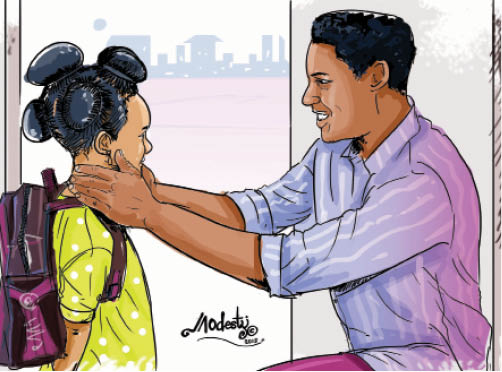The fundamental role of parents (biological and adoptive parents) are, support, nurturance, and guidance for their children. That role includes the fundamental right to direct the child’s upbringing and guide them right as they grow.
Inclusive in the role is the importance for personal development of the children. Basic traditional roles of being a parent are: nurture and educate children, discipline them, manage home and financially support family. The main idea is that parents must be child centered and should aim to optimal growth and development of their children, to help them have satisfactory biological, social, psychological and emotional growth.
Parents who exert too much control over their children could be causing them lifelong psychological damage, according to a study which tracked a group of people born in the 1940s until the present day.
Researchers found that people who reported their parents had intruded on their privacy in childhood or encouraged dependence were more likely to have low scores in surveys of happiness and general wellbeing carried out in their teens, their 30s, their 40s and even their 60s.
The negative impact on wellbeing was comparable in scale to that observed in people who have suffered bereavement, experts from University College London (UCL) said.
Overprotective parents tend to display habits like, working hard to help child to succeed, solving all of the child’s problems, controlling child’s friendships, not giving house chores, discouraging the child from taking risks, maintaining constant contact when child is physically away from parents, talking excessively to spouse, friend, or teachers to find out how their child is doing, not educating the child about the real world, inquiring about the life of the child frequently, being overly sympathetic if something does not work out for the child and so on.
Mrs Grace Chibueze recounted her childhood days with her overprotective father. She described her experience as a terrible one adding that at a point she hated her parents especially her father.
“I always blamed my mother for allowing father to always have his way. As a child I knew very little about the outside world as I was never given the opportunity to even go out, being the only daughter of my parent with just a brother too.
We were never allowed to go out without supervision even to play with our neighbor’s children was a threat to my father. He always covered up by saying he loved us too much and would not want us to be hurt. Though he provided all that was needed at home but gradually our lives became a routine because we had no friends.”
Mrs Chibueze added that even cousins and relatives do not visit them because they called their home a prison. “Even at school, we had no friends because when we did, the relationship was practically cut short because they were chased away when they visit.”
She said she eagerly looked to finishing secondary school and securing admission into the university which would serve as a way of escape for her. “I eventually gained admission to a distanced university from home but my parents still linked me up with my aunt but she understood better. They keep calling to monitor me but I gained freedom.”
A graduate of Business Administration who want to be identified as Alaba said, being overprotective is not the best way to train any child. Recounting her ordeal with her maternal uncle who raised her with his own biological children after her mother died she said, they were not allowed to go out on their own except the uncle take them.
“He personally drive us to school and pick us after closing, he drives us to church and so many places. My aunt (the wife) has no right to send me to buy anything outside the estate gate even the children because he was scared something bad would happen.”
She said it became worse when she became a teenager adding that the uncle was scared she could be raped or impregnated.
“But I eventually gained admission to a polytechnic in Ondo state where he got me a guidance and accommodation but I left the place on my own after the first semester to the school hostel.”
Alaba said she did that because she wanted to grow and be independent because she was no longer a child but adult.
A social psychologist and the CEO parenting support system Limited, Mrs Toyin Ogunkanmi who defines parenting as the deliberate process of raising and nurturing a child from infancy to adulthood quoted the United Nations defining a child as anyone below the age of 18.
“From the definition of what parenting is and who a child is; I would say the parents are to raise, nurture, and guard and guide their children until age 18. However, everyone is unique and different therefore based on your child’s uniqueness, personality type, temperaments and maturity, the parents can start giving the child responsibilities earlier.”
She added that before you let that child become independent ensure you have trained, disciplined (not flogging or punishment), infused him/her with the right values, morals and ethics.
“It will be irresponsible of a parent to allow a child that has not been properly trained to be independent. The child will become a danger to himself and the society.”

 Join Daily Trust WhatsApp Community For Quick Access To News and Happenings Around You.
Join Daily Trust WhatsApp Community For Quick Access To News and Happenings Around You.


